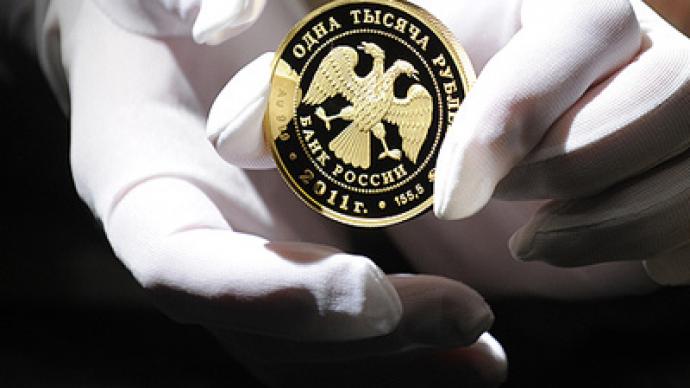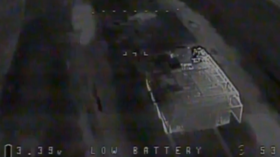Balancing inflation and the rouble

The move by Russia’s central bank to lift the refinancing rate at its last meeting brought economic focus back to inflation, with crude and commodity prices, the rouble, and the economic recovery all factors to be balanced in the response.
Inflation took off in January, with the surge in crude prices and commodities generally leading to fears it could go higher.Vladimir Tikhomirov, Chief economist at Otkritie says the full inflationary impact of the recent surge in oil prices has yet to be felt. “The current surge in oil prices will gradually worsen Russian inflation, in fact oil prices is not so far a major issue for the inflation process. When we see increase in oil prices it leads to hikes in fuel prices and the chain is further obvious for Russia meaning that inevitably food prices start rising. Taking into consideration that food products account for 38% of consumer basket it became apparent that consumer sentiments will deteriorate. Apart from oil prices, dwindling of harvest and continuous increase of tariffs amalgamate into a serious blast of inflation.” Veles Capital analyst, Ivan Manaenko, believes that after the rebound in food prices during 2H 2010 it has been the recent surge in crude prices, reflecting social instability in the Middle East, which has forced the central bank to act.“The Central Bank’s reactions to soaring oil prices we have seen already in February when the Central Bank has changed its tactic from smooth well signaled rate increases to a more aggressive stance. Assuming speculative oil price maximums and government policy commitment to limiting price increases the inflationary impact will be limited. I think, that the Central Bank may raise rates by 0.25-0.5 pp in the first half 2011.”UniCredit Chief Economist, Vladimir Osakovsky believes the Central Bank will be pushed into stronger action, tipping a 1% increase in the refinancing rate during the first half of 2011, on the back of food price hikes. “Moreover, food prices continued to post robust gains, partly supported by strong seasonality in fruits and vegetables, but most other non-seasonal items also posted robust price growth. Therefore, we continue to believe that inflationary pressures are likely to remain strong in the coming months, as the impact of the administrative correction in fuel prices is set to fade in the near future. We also reiterate our expectations of continued monetary tightening by the CB in response to such rising inflationary pressures, and keep our forecast of cumulative 100bp in rate hikes in first half 2011.”Otrkitie’s Tikhomirov sees inflationary pressure subsiding during 2H 2011, but only if oil prices stabilize and food price inflation, internationally and domestically, doesn’t break out more than it has.He says that the rebound in Russian inflation created an environment where the Central bank was forced to act.“The Central Bank’s challenge is far more complicated as a regulatory body with the bulk of triggers. It is far more concerned on lowering money supply by increasing rates and not only refinancing rates, the core measures are rising reserves rates and other hedging rates that secure and slash the volume of free liquidity on the market. In essence, the Central Bank’s announcement and actions on the refinancing rate and continued increases reflect politics and pressure, because rates have remained unchanged since July 2010 when the inflation rate was 5.5%.But now it grew to 9.5% which can not be ignored. My forecast will be for inflation at 10.5%-11% for 1H 2011 and than we can see a moderation of the rate easing to 9% at the end of 2011. However, that will happen only if: Russia and the rest of the world has a good harvest, oil prices stabilize and the rouble continues to strengthen.”
The last point is one he emphasizes, noting that it is only recently that the Central Bank has moved to allow the currency to again be used as an anti inflationary tool.“The Central Bank activated a mechanism of rouble strengthening as an important measure to fight skyrocketing inflation.”Oleg Solntsev, expert at Center for Microeconomic analysis, also believes that rouble appreciation is one of the few effective means at the Central Banks disposal."Rouble exchange rate has a strong impact on inflation, while the influence of interest rates and money supply are virtually meaningless in this situation. The Central Bank’smeasures to raise the refinancing rate seems to be rather ritual. The annual growth of inflation in the first half 2011 is largely attributed to a low base effect in 2010, and spur quite logical actions from monetary authorities, including the intention to support the rouble. We expect the effect of low base to diminish in the second half 2011 and the policy course will change.”But Alexandr Morozov, Chief economist at HSBC Russia and CIS, expects the inflation pace to rise despite the Central Bank’s actions.“Strong rouble stimulates imports and isn’t likely to have a short term effect of slowing inflation. HSBC does not actually see the chance to reduce annual inflation in 2011 from its current level, predicting it to reach 9.5%.”Otrkitie’s Tikhomirov also sees the possibility of other inflation control measures at an administrative level.“Government policy is to restrain, prevent excessive inflation for consumers and insist on reasonable price calculation. We have noticed a slow down in inflation growth pace in February due to robust government control of fuel prices. I think, the regional government may also be advised to set up fixed prices on FMCGs as happened last summer.” Beyond this Veles Capital analyst, Ivan Manaenko believes any address will necessarily be complex.“Continuous regulation of interest and refinancing rates, rouble support in a complex with monetary stabilization and clearance through deposits and bonds will be effective in order to restrain inflation. I must admit, that the monetary component of inflation in the last six months has decreased, whereas the increase in food prices has become more visible. In addition, inflation is partly exported to Russia from other countries, for example, the United States. So in this sense, the Bank of Russia has to deal with all of the others.”












